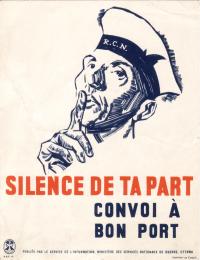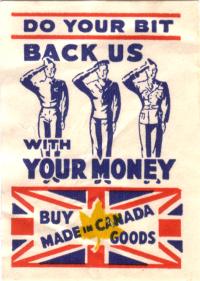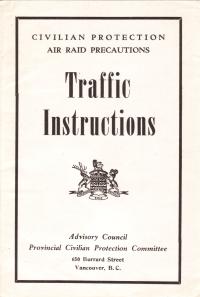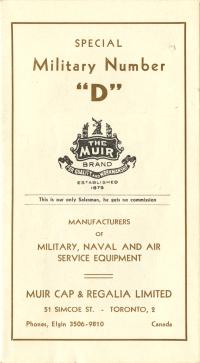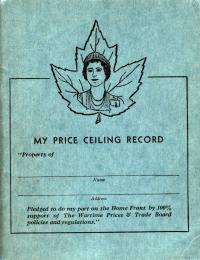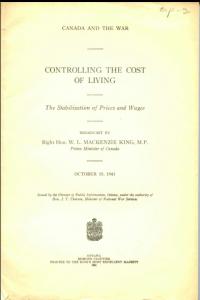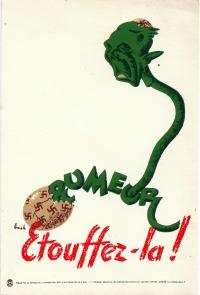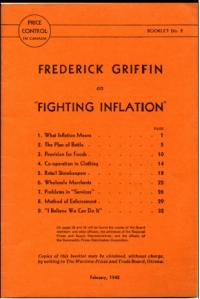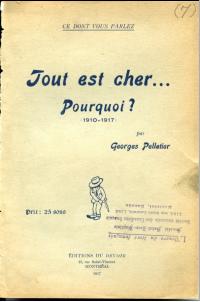Shopping
Loose lips sink ships
In this mini-poster, a Canadian seaman urges people to keep quiet - inadvertently revealing sensitive military information might lead to the sinking of his ship.
Buy Canadian
This decal, probably intended to be affixed in a store window, reminded consumers that buying Canadian goods supported local workers and helped shore up the currency at the same time.
Driving in a blackout
To achieve an effective blackout, the BC government issued this pamphlet to instruct drivers on modifying their cars, motorcycles, and bicycles by masking the headlights.
Shopping for uniform hats
One of the unintended consequences of war was a steep rise in demand for military uniforms, hats, badges, and other paraphernalia, demand that manufacturers were happy to meet.
Keeping an eye on prices
To combat inflation during the Second World War, the federal government imposed controls on wages and prices. These booklets were distributed widely to women so they could keep track of prices while shopping; stores that appeared to be charging above the price ceiling were to be reported to one of thirteen Women's Regional Advisory Committees for investigation.
Controlling the Cost of Living
This speech by Prime Minister William Lyon Mackenzie King in October 1941 addresses the increased cost of living during wartime, including potential causes and a plan for stabilization.
The walls have ears
This advertisement encouraged Canadians to be particularly careful about what they said in hotels, for it was always possible that an enemy agent might be listening.
Rumour - Kill It!
This advertisement, which was produced in many different formats during the Second World War, urged Canadians to take a hard line against rumour-mongering.
Fighting inflation
This pamphlet, the second in a series, emphasizes price-consciousness through an overview of Canada's price control policy and its effectiveness on combating inflation.
Everything is Expensive ... Why?
By 1917, Canadians were experiencing a steep rise in the cost of living. A number of Canadians called for the Borden government to implement a system of wartime price-fixing to alleviate the strain of inflation. While systems of food and fuel control would be adopted in mid-1917, formal price-fixing was never adopted. This booklet contemplates the issue and questions why Canadians should be subject to such inflation during wartime.

